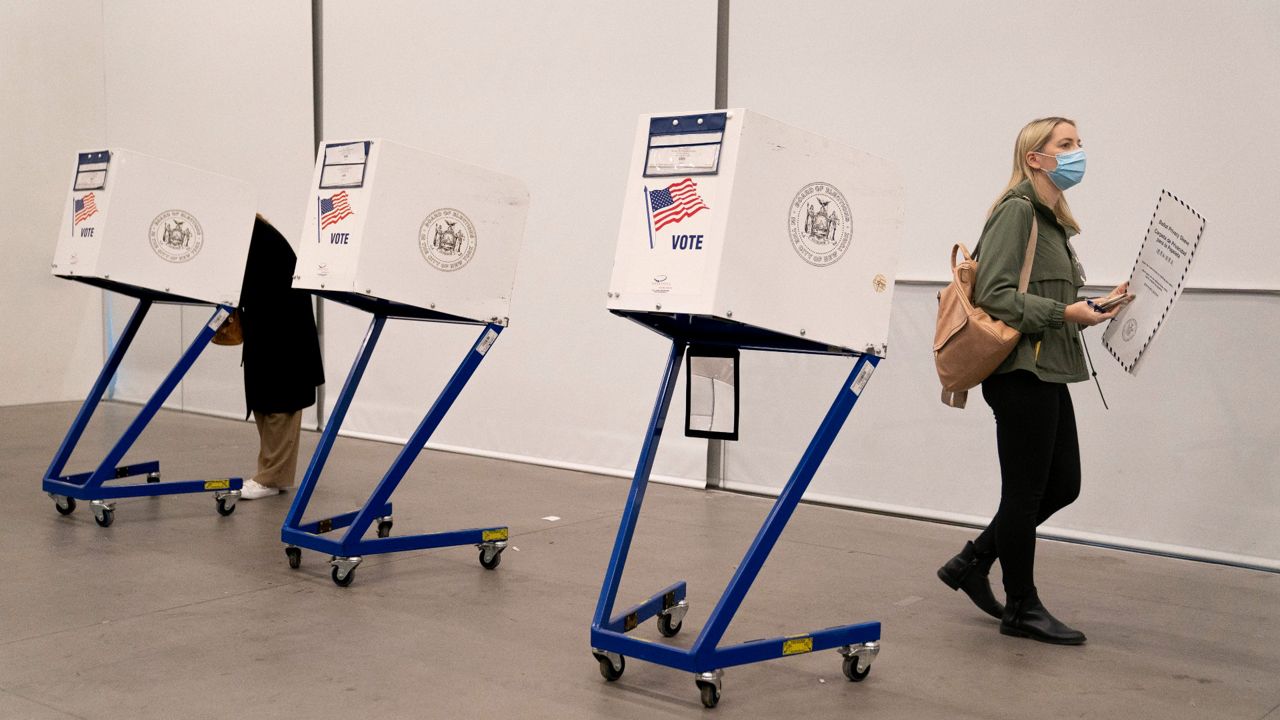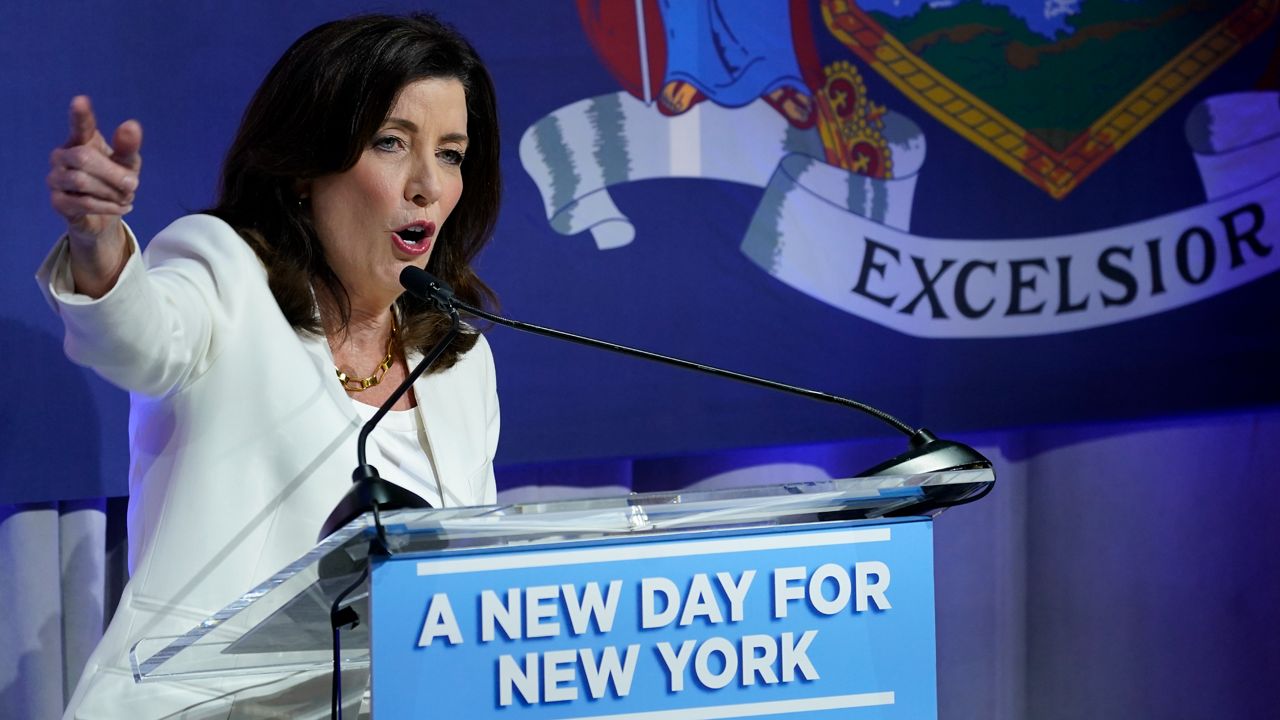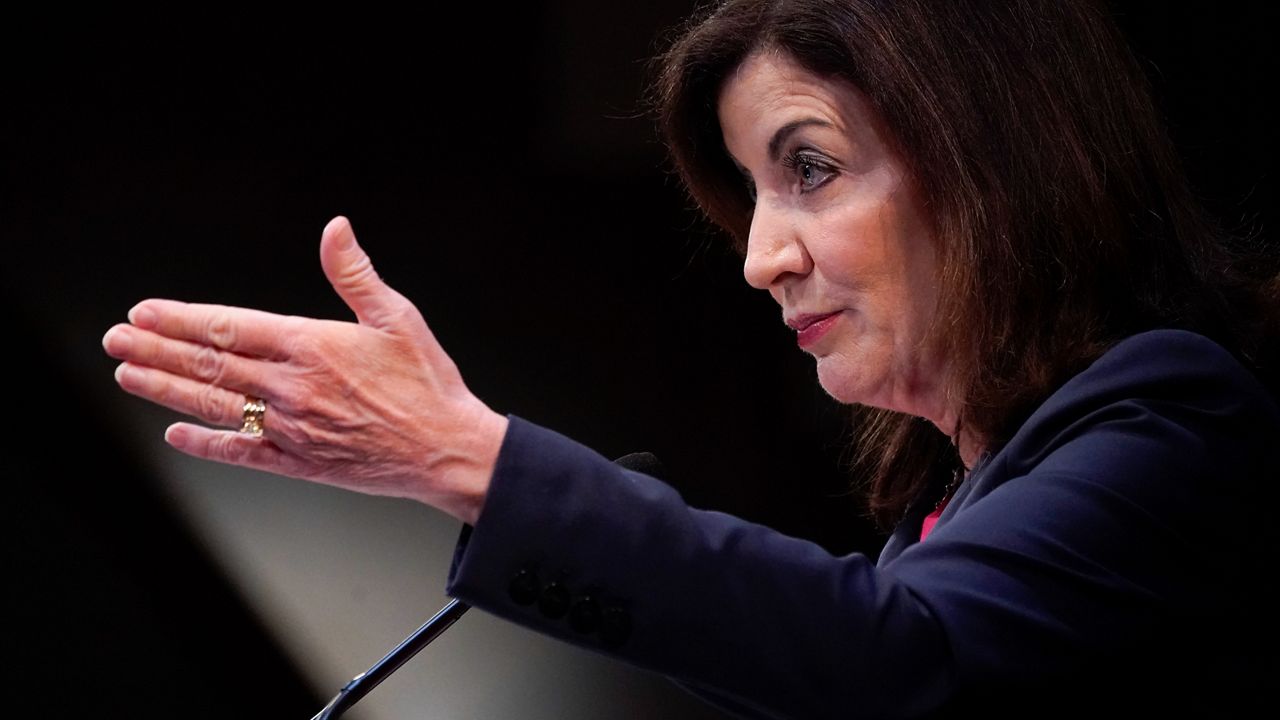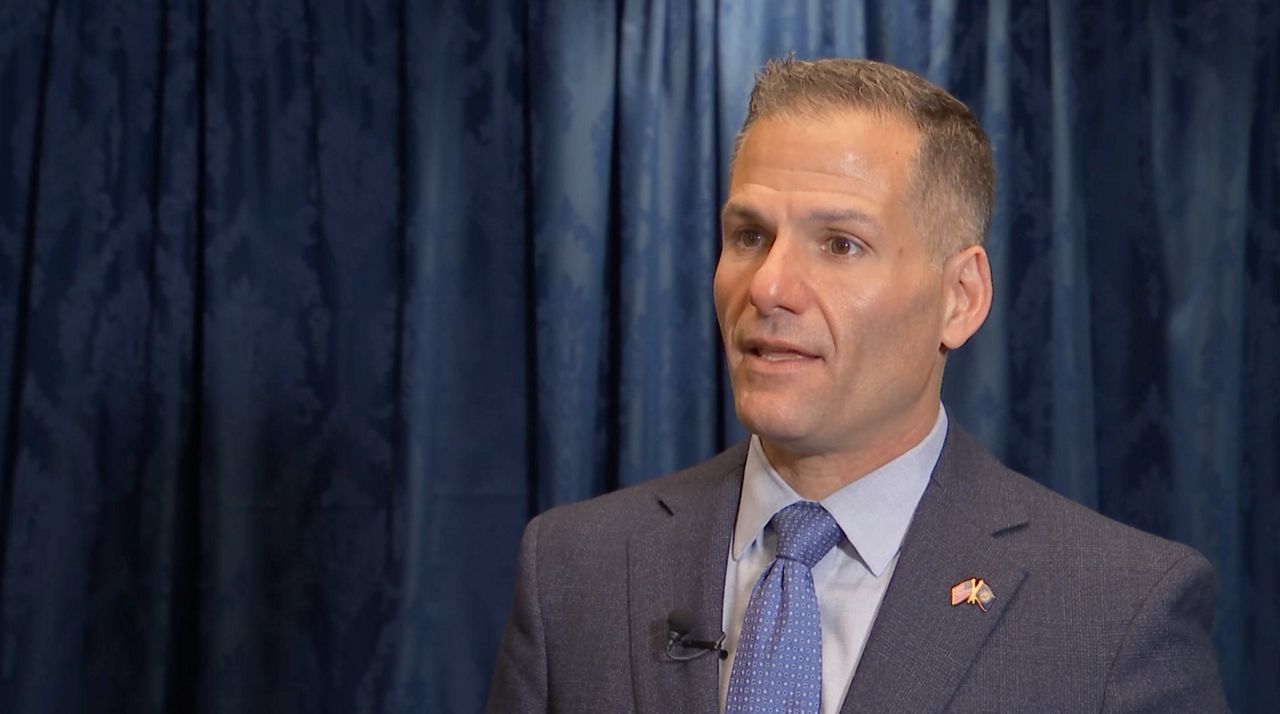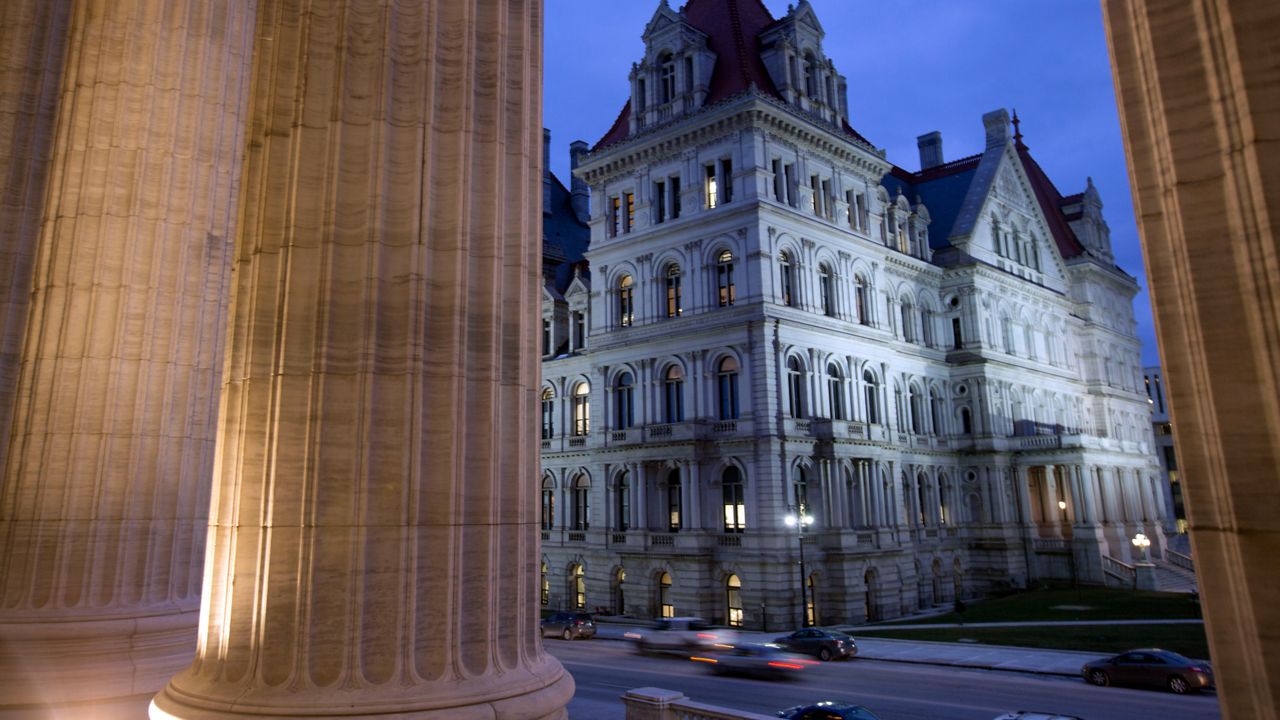Concerns over the economy and crime drove New York voters this election season, as they worry over the future of democracy in the country and violence stoked by political parties, according to an Associated Press survey of registered voters.
Gov. Kathy Hochul secured a victory against Rep. Lee Zeldin in a race where 41% of respondents said the economy was their primary concern, while 15% chose crime and 10% chose climate change.
Yet Zeldin made crime his centerpiece issue, promising to reverse nearly every criminal justice reform made by Democrats in recent years. In NY1’s gubernatorial debate, Zeldin proposed to address high costs of living in New York by cutting government spending, taxes and regulations.
While Hochul and state Democrats emphasized abortion rights, in the wake of the Supreme Court overturning Roe v. Wade, just 13% of Hochul voters picked abortion rights as their top issue—within the margin of error for the 15% who chose climate change and the 12% that cited gun policy.
More than two-and-a-half years into the pandemic, just 2% of New Yorkers said COVID-19 was their top issue.
The survey, conducted in the week leading up to Election Day, is based on interviews and questionnaires from more than 90,000 voters, including 3,000 in New York. It was the most comprehensive survey of the electorate conducted during this election cycle, with double the sample size of the largest New York state poll to date.
With dozens of questions probing voters’ motivations, concerns and views on the country, as well as extensive demographic information about age, education, income and identity, the VoteCast survey offers a unique window into what is driving election results.
Zeldin voters showed in the survey that they carried deep-seated worries about their family’s finances. About 40% in the Zeldin camp said they were “falling behind,” with 55% saying they were holding steady and 5% saying they were getting ahead. Zeldin voters also voiced broader concern with their ability to keep up with their expenses when compared to Hochul supporters.
Among Hochul voters, who skewed toward higher incomes in the survey, just a quarter said they were falling behind.
Nearly three-fourths of voters had a negative outlook on the state of the American economy, while effectively splitting on whether they approved or disapproved of President Joe Biden’s handling of economic issues.
While crime emerged as a top issue for all voters, it did not demonstrate a dramatic divide between camps of supporters as many expected, with 94% of Zeldin voters calling it an important factor in their vote, and 80% of Hochul voters saying the same. On both sides, about 85% said they were very or somewhat concerned about crime in their community—although more Zeldin voters described themselves as “very” concerned when compared to Hochul supporters.
When asked about crime in their own community, 51% of all New York voters said they were very concerned, with just 14% saying they were either not very or not at all concerned.
On climate change—a top-three issue for Hochul voters—nearly two-thirds of Zeldin voters said they were not too or not at all concerned about its effects.
The survey revealed deep concerns about political violence, and where it’s coming from. A fifth of voters believe that political rhetoric from both parties is leading to acts of violence, while 60% of respondents said that Republicans are fomenting violence. Nearly half of voters said that preserving American democracy was a top issue for their vote this cycle.
A little more than one-fifth of New Yorkers said they were not very or not at all confident that their votes would be counted accurately.
Voters from the opposing camps appeared most at odds over their trust and confidence in the news media to report accurate and fairly. Three-fourths of Zeldin supporters said they had little or no trust in the media, compared with 30% of Hochul supporters.
With the midterms playing a significant role in the ability of Biden to accomplish his remaining agenda, the survey included several questions on the president’s performance and ability.
Voters were effectively split on whether Biden’s policies are driving high prices tied to inflation—and whether he has the mental capacity to serve as president. Small majorities of all New Yorkers said that Biden is honest and trustworthy, but not a strong leader.
In a night where candidates favored by former President Donald Trump saw failure or success by a razor’s edge—and Florida Gov. Ron DeSantis, considered a frontrunner for the 2024 Republican presidential nomination, won his reelection campaign handily—the survey suggested that voters are not focused on Trump.
About 58% of Zeldin supporters said Trump was not a factor at all in their vote, and only a third of that group said they had a “very favorable” opinion of Trump, with 16% saying they had a “very unfavorable” opinion of him.




